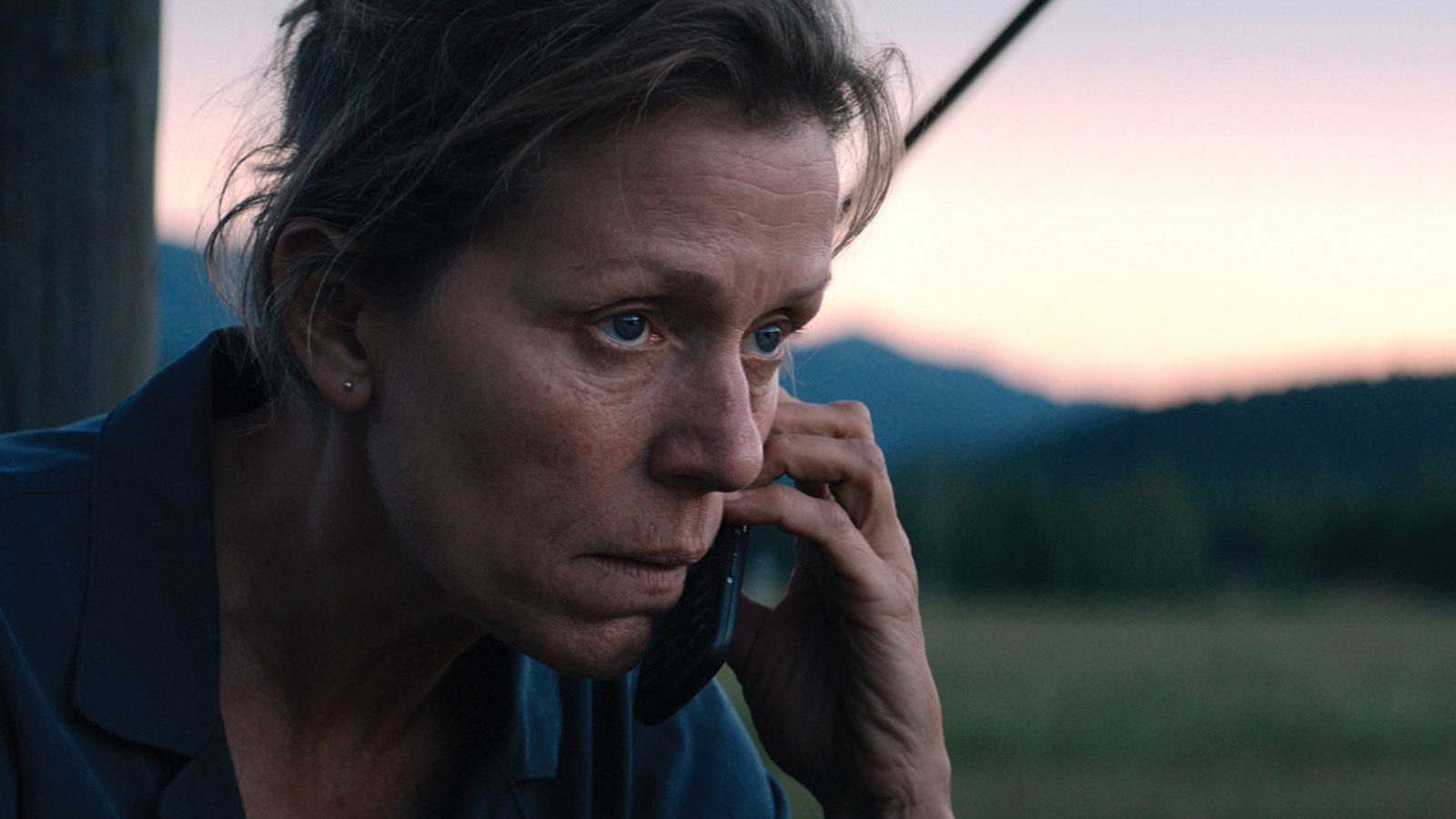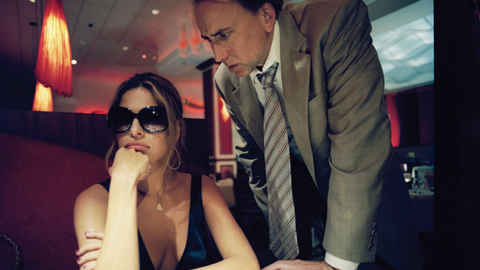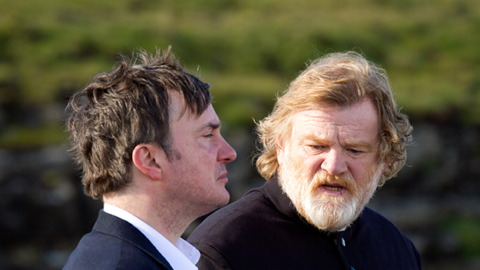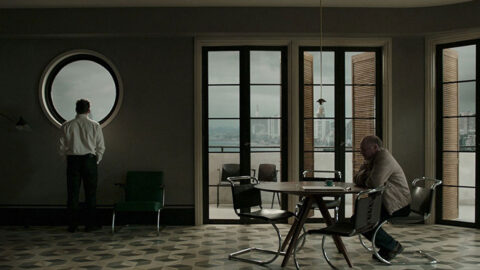
Review: Three Billboards Outside Ebbing, Missouri
More than 20 years after Fargo, Three Billboards Outside Ebbing, Missouri returns Frances McDormand to Midwestern Gothic territory. In place of the Coen Brothers’ sense of well-trodden own-backyard geographical specificity, the British-Irish playwright and filmmaker Martin McDonagh lays his film’s scene in a fictional burg in the Show Me State, a town of indeterminate size and unclear location. We might guess that it’s meant to be somewhere in the Ozarks, for the terrain—actually played by the Black Mountains of Western North Carolina—has its share of peaks, and there is apparently a tourist trade, for McDormand’s character, Mildred Hayes, runs a shop selling homey little tchotchkes.

In her free time, however, Mildred likes to needle the Ebbing police department about their failure to find the killer of her daughter, who some months back was discovered charred and dead after a brutal rape. Mildred’s latest inspiration in agitation involves renting the eponymous roadside billboard space and putting up a sequence of Burma Shave–style ads that drop a great, big ol’ j’accuse in the lap of the town sheriff—something that doesn’t sit well with the local yokels, for Sheriff Willoughby is a respected man, played by Woody Harrelson at his most folksy-amiable, and moreover is in his final months, dying of inoperable cancer.
McDormand and Harrelson lead a cast stacked with a variety of fine actors and verifiably American types: freckle-flecked Caleb Landry Jones as the sign company manager; a grandly mustachioed Peter Dinklage, getting the movie’s single best one-liner; wiry and raw-boned John Hawkes as Mildred’s ornery ex-husband; and Manchester by the Sea’s Lucas Hedges, excellent as her surviving high school-age son. (Australian Abbie Cornish, the lone non-American featured actor playing Harrelson’s wife, is rather refreshingly left to speak in her native accent.) This is an ensemble with all the chops to carry a gritty neorealist tragedy, but that McDonagh is not particularly concerned with realism becomes clear sometime between the scenes when Mildred kicks one of her son’s female classmates in the groin and when she firebombs the precinct house, in both cases getting away scot-free.
Three Billboards Outside Ebbing, Missouri is McDonagh’s third feature following In Bruges (2008) and Seven Psychopaths (2012), and like his previous films could most succinctly be described with the vague appellation “black comedy,” being as it is a movie set in the aftermath of an act of ghastly violence that goes for big yuks by way of rapid-fire profane zingers and broad comedy. (Preparing to play a gormless hick deputy, Sam Rockwell seems to have devoured all 23 seasons of Hee Haw.) It is a palpably written film, indifferent to naturalism in dialogue or plotting—when most any right-thinking sophisticated filmgoer today knows that “plot” is a four-letter word, this an art-house outlier, a film of twists and turns in spades.
All of this is sympathetic in theory, hard going in practice. Three Billboards Outside Ebbing, Missouri has the makings of a crowd-pleaser, replete with righteous monologues to cue seal-like applause from a left-leaning audience, but this face in the crowd finds McDonagh too clever to be funny, and congenitally incapable of locating a single distinguishing image, either in fairy tale Bruges or in tumbledown Appalachia. These failings are only exacerbated by McDonagh’s indifference to exploring the specifics of the flyover country where he sets his scene—the specificity that grounds, say, Steven Soderbergh’s Logan Lucky, or the work of an Elmore Leonard or a Charles Willeford, source of the bon mot: “Just tell the truth, and they’ll accuse you of black humor.” And while McDonagh’s film doesn’t lack for gallows humor and pitch-dark stuff, it’s in the department of truth that it comes up short.
Nick Pinkerton is a regular contributor to Film Comment and a member of the New York Film Critics Circle.







